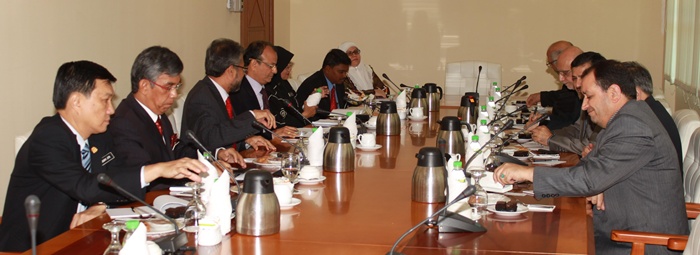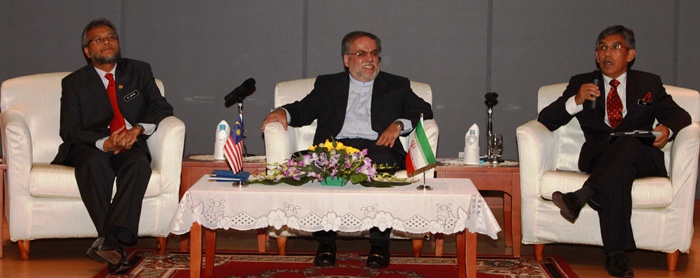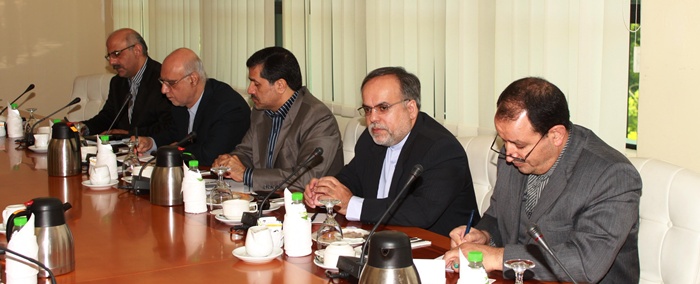A Public Lecture entitled, “The Middle East Crisis”, by H.E. Mostafa Dolatyar, Director General of the Institute for Political and International Studies (IPIS) of The Islamic Republic of Iran was held at IDFR on 9 November 2011.
In his lecture, the visiting dignitary gave his perspective of the political crisis affecting the countries of the Middle East and North Africa and on the political differences that have affected relations between his country and the West.
He described Iran as a “happy country” despite the many challenges it faces including the effect of economic sanctions by the West for more than three decades. He stressed that Iran does not have any problems with its Arab neighbours, with whom it has much in common culturally, socially and economically.
He said that his country has been put on the right path after its Islamic revolution of 1979, and that the country now is guided by three pillars or principles, namely: “independence”; “freedom”; and the “Islamic system of government”.
The speaker explained that what is happening in some of the countries in the Middle East and North Africa is similar to the situation in Iran just before its Islamic revolution. He opined that just like in Iran then, the people in these countries have suffered under authoritarian regimes characterized by lack of freedom, wide spread corruption and discrimination. They now yearn for freedom, dignity and a better quality life.
With regard to possible conflict between the Shia and the Sunnis, he said that differences between the two have been used by the West to sow disunity among Muslims. He felt that there are no major differences between these two groups as they both believe in the Koran and Prophet Mohamad. Also, they have lived together peacefully in the Middle East since the fourteenth century. As such, he expressed hope that any friction between the two groups will diminish with time.
The speaker also expressed the view that NATO will not be able to provide political stability or bring sustainable peace to the countries of the Middle East, partly because its role will not be accepted by the local people as the Koran does not allow Muslim countries to receive military protection from non-Muslim countries.
On the nuclear non-proliferation issue brought against Iran by the West, he said that his country has already met all the conditions set by International Atomic Energy Agency (IAEA) on this matter. He felt that western pressure on Iran on this issue is to force it to change its stand on the Palestinean issue. The speaker requested the audience to read Dr. Mohamad ElBaradei’s book entitled, “Age of Deception”, to know the actual situation regarding his country on the nuclear issue.
As regard to the future outlook of countries affected by the Middle East crisis, he said that each of the countries involved have to evolve its own system of government suited to its own specific needs. Iran has no intention of imposing its model of government on the countries in the region.
Touching on the Palestinian issue, he felt that the current problem there is caused by the lack of justice for the Palestinians. He said peace will only prevail where there is justice.
Finally, he said that Malaysia, as one of the more successful Muslim countries, could play a useful role in promoting freedom, economic progress and development in the countries of the Middle East.






